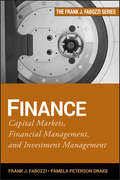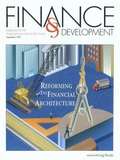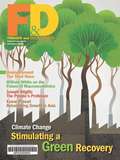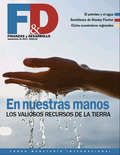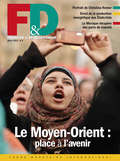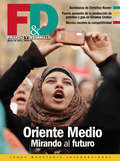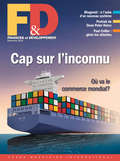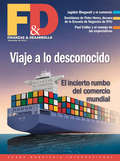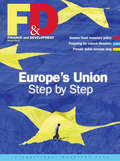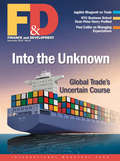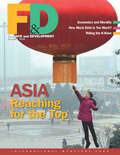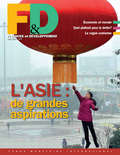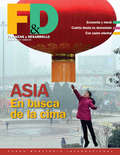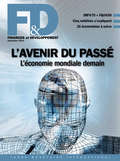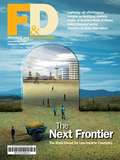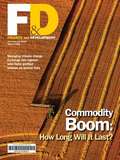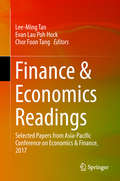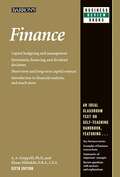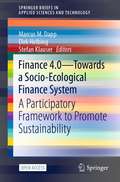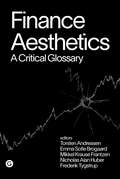- Table View
- List View
Finalizing a Deal between Riva Corporation and Charlton Corporation: Riva's Internal Deliberation (D) - Riva's CFO
by Andy Zelleke Anthony J. MayoExercise
Finalizing a Deal between Riva Corporation and Charlton Corporation: Riva's Internal Deliberation (E) - Riva's Chief Strategy Officer
by Andy Zelleke Anthony J. MayoExercise
Finalizing a Deal between Riva Corporation and Charlton Corporation: The Charlton Team Perspective
by Andy Zelleke Anthony J. Mayo Joshua D. MargolisNo abstract available.
Finalizing a Deal between Riva Corporation and Charlton Corporation: The Riva Team Perspective
by Andy Zelleke Anthony J. Mayo Joshua D. MargolisExercise
Finance
by Drake Pamela Peterson Fabozzi Frank J.Created by the experienced author team of Frank Fabozzi and Pamela Peterson Drake, Finance examines the essential elements of this discipline and makes them accessible to a wide array of readers-from seasoned veterans looking for a review to newcomers needing to get their footing in finance. Divided into four comprehensive parts, this reliable resource opens with a detailed discussion of the basic tools of investing and financing decision-making-financial mathematics and financial analysis. After this informative introduction, you'll quickly become familiar with the three primary areas of finance-capital markets (Part II), financial management (Part III), and investment/asset management (Part IV)?-and discover how these different areas are interconnected. Finance is a well-rounded guide to this dynamic field. The straightforward insights found here will put you in a better position to understand what the principles of modern finance are and how they can be used to make the right decisions when managing risk and return in today's complex financial environment.
Finance
by Nico van der WijstBy providing a solid theoretical basis, this book introduces modern finance to readers, including students in science and technology, who already have a good foundation in quantitative skills. It combines the classical, decision-oriented approach and the traditional organization of corporate finance books with a quantitative approach that is particularly well suited to students with backgrounds in engineering and the natural sciences. This combination makes finance much more transparent and accessible than the definition-theorem-proof pattern that is common in mathematics and financial economics. The book's main emphasis is on investments in real assets and the real options attached to them, but it also includes extensive discussion of topics such as portfolio theory, market efficiency, capital structure and derivatives pricing. Finance equips readers as future managers with the financial literacy necessary either to evaluate investment projects themselves or to engage critically with the analysis of financial managers. Supplementary material is available at www. cambridge. org/wijst.
Finance & Development
by Jeremy Clift Marina Primorac Hyun-Sung KhangThis publication gathers together articles, that have appeared in Finance & Development over the past eight years, which dealt with the inplications of, and responses to, globalization. The focus is on financial globalization, including the policy implications of the huge growth in cross-border capital flows.
Finance & Development (EPub)
by International Monetary FundThe September 2008 issue examines key issues facing low-income countries, including how they should respond to high oil and food prices. Some African economies are now successfully attracting international investors and are seen as a new tier of "frontier" emerging markets. Separate articles look at problems of aid effectiveness, aid predictability, and aid fragmentation. Other articles include an account by Eswar S. Prasad and Raghuram G. Rajan of their new report on financial sector reforms in India; Martin Ravallion and Dominique van de Walle draw lessons on reducing poverty from Vietnam's agrarian reforms; Sanjeev Gupta and Shamsuddin Tareq make a strong case for sub-Saharan countries to mobilize their domestic revenue bases. In addition, Simon Willson profiles Beatrice Weder di Mauro, the first woman on Germany's Council of Economic Experts; and the outgoing IMF Chief Economic Simon Johnson talks about the new drivers of global growth-emerging markets.
Finance & Development (EPub)
by John TaylorCommodity Boom: How Long Will It Last?" asks how economies will fare after the record-high prices of key raw materials posted in recent months, which build on dramatic increases from their lows of 2000. The lead article warns that the impact on headline inflation levels might persist throughout 2008, even without further commodity price hikes. It urges policymakers to ensure efficient functioning of market forces at the global level, and to move swiftly to protect the poorest. Another article addresses the effects of climate change on agriculture, warning that farm production will fall dramatically-especially in developing countries-if steps are not taken to curb carbon emissions. Other articles on this theme argue that policies to reduce greenhouse gas emissions need not hobble economies, and that financial markets can help address climate change. "People in Economics" profiles John Taylor; "Picture This" says the global energy system is on an increasingly unsustainable path; "Country Focus" spotlights South Africa; and "Straight Talk" examines early warnings provided by credit derivatives. Also in this issue, articles examine China's increasing economic engagement with Africa, and the outsourcing of service jobs to other countries.
Finance & Economics Readings: Selected Papers From Asia-pacific Conference On Economics And Finance 2017
by Lee-Ming Tan Evan Lau Poh Hock Chor Foon TangThis book is a compilation of the best papers presented at the 2017 installment of the Asia-Pacific Conference on Economics & Finance (APEF), which is held annually in Singapore. With a great number of submissions, it presents the latest research findings in economics and finance and discusses relevant issues in today's world. The book is a useful resource for readers who want access to economics, finance and business research focusing on the Asia-Pacific region.
Finance (Barron's Business Review Series)
by Ehsan Nikbakht DBA, CFAThis updated edition defines and explains key financial terms and discusses topics that include Business types and taxation methods The value of money over time Capital budgeting Investing and financingDividend policy Investment decisions based on financial derivatives Financial analysis Managing working capital Analyzing financial statements Using financial software, and much more. Books in Barron’s Business Review Series are intended mainly for classroom use, and include review questions with answers. They make fine supplements to main texts when included in college-level business courses.
Finance 4.0 - Towards a Socio-Ecological Finance System: A Participatory Framework to Promote Sustainability (SpringerBriefs in Applied Sciences and Technology)
by Dirk Helbing Marcus M. Dapp Stefan KlauserThis Open Access book outlines ideas for a novel, scalable and, above all, sustainable financial system.We all know that today’s global markets are unsustainable and global governance is not effective enough. Given this situation, could one boost smart human coordination, sustainability and resilience by tweaking society at its core: the monetary system? A Computational Social Science team at ETH Zürich has indeed worked on a concept and little demonstrator for a new financial system, called “Finance 4.0” or just “FIN4”, which combines blockchain technology with the Internet of Things (“IoT”). What if communities could reward sustainable actions by issuing their own money (“tokens”)? Would people behave differently, when various externalities became visible and were actionable through cryptographic tokens? Could a novel, participatory, multi-dimensional financial system be created? Could it be run by the people for the people and lead to more societal resilience than today’s financial system (which is effectively one-dimensional due to its almost frictionless exchange)? How could one manage such a system in an ethical and democratic way? This book presents some early attempts in a nascent field, but provides a fresh view on what cryptoeconomic systems could do for us, for a circular economy, and for scalable, sustainable action.
Finance Aesthetics: A Critical Glossary (Goldsmiths Press / PERC Papers)
by Torsten Andreasen, Emma Sofie Brogaard, Mikkel Krause Frantzen, Nicholas Alan Huber, and Frederik TygstrupA unique, critical, and creative encyclopedia from scholars, artists, and writers on the world and words of finance capital.What does finance capital look like? How do the push and pull of debt and credit shape our feelings and relations? Across fifty-five unforgettable entries, Finance Aesthetics: A Critical Glossary offers an unorthodox appraisal of our bizarre, distorted contemporary condition.

